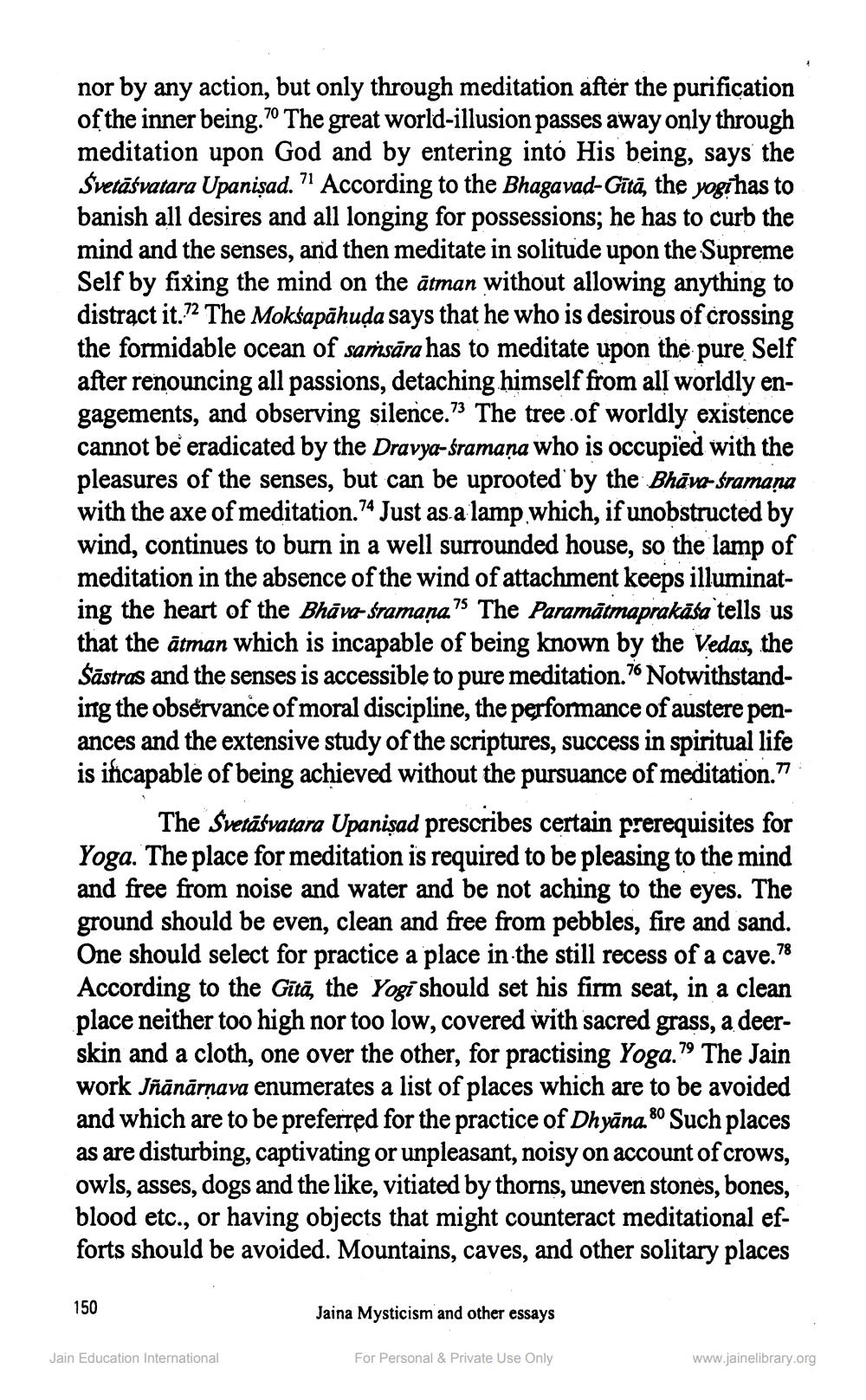________________
nor by any action, but only through meditation after the purification of the inner being. The great world-illusion passes away only through meditation upon God and by entering into His being, says the Svetāśvatara Upanişad. " According to the Bhagavad-Gītā, the yogi has to banish all desires and all longing for possessions; he has to curb the mind and the senses, and then meditate in solitude upon the Supreme Self by fixing the mind on the ātman without allowing anything to distract it.72 The Mokšapāhuda says that he who is desirous of crossing the formidable ocean of saṁsāra has to meditate upon the pure Self after renouncing all passions, detaching himself from all worldly engagements, and observing silence.73 The tree.of worldly existence cannot be eradicated by the Dravya-śramana who is occupied with the pleasures of the senses, but can be uprooted by the Bhāva-śramana with the axe of meditation.74 Just as a lamp which, if unobstructed by wind, continues to burn in a well surrounded house, so the lamp of meditation in the absence of the wind of attachment keeps illuminating the heart of the Bhāva-śramana 7 The Paramātmaprakāsa tells us that the atman which is incapable of being known by the Vedas, the Šāstras and the senses is accessible to pure meditation. Notwithstanding the observance of moral discipline, the performance of austere penances and the extensive study of the scriptures, success in spiritual life is incapable of being achieved without the pursuance of meditation."
The Svetāśvatara Upanişad prescribes certain prerequisites for Yoga. The place for meditation is required to be pleasing to the mind and free from noise and water and be not aching to the eyes. The ground should be even, clean and free from pebbles, fire and sand. One should select for practice a place in the still recess of a cave.78 According to the Gitā, the Yogi should set his firm seat, in a clean place neither too high nor too low, covered with sacred grass, a deerskin and a cloth, one over the other, for practising Yoga." The Jain work Jñānārņava enumerates a list of places which are to be avoided and which are to be preferred for the practice of Dhyāna. 80 Such places as are disturbing, captivating or unpleasant, noisy on account of crows, owls, asses, dogs and the like, vitiated by thorns, uneven stones, bones, blood etc., or having objects that might counteract meditational efforts should be avoided. Mountains, caves, and other solitary places
150
Jaina Mysticism and other essays
Jain Education International
For Personal & Private Use Only
www.jainelibrary.org




